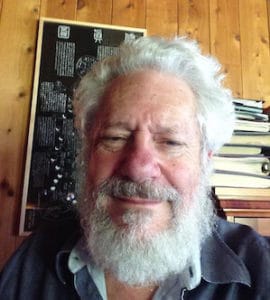These days we worry about getting through school, passing the boards and then getting a practice started. But there was a time when there were no schools, or national accreditation and practicing acupuncture was a felony. That world was not so long ago, and as is often the case, it is difficult to understand the present moment without a sense of the history that it contains.
Stuart Kuchins, our guest in this conversation began practicing acupuncture before there was licensing and accreditation. He has a view of our medicine and it’s practice that can only come from decades of engagement, learning and integration.
Listen in to another discussion on a view of medicine that comes from the experience of practice over the course of decades.
In This Conversation We Discuss:
- Acupuncture was a felony when he began
- How you know when you’ve found your vocation
- Early teachers and influences
- “Why doesn’t this work” is a good place to start
- Patients bring their own solutions
- It helps to be helpful
- We don’t do the healing, the patient does
- The critical importance of listening
- The narrative our patients offer is usually incomplete
- The mind wants to make up meaning; stories develop so fast you can’t see it coming
- As to the mind-body connection… have you ever experienced your mind and body being separate?
- The pervasive influence of placebo
- The body is never far from where the mind is
 Stuart Kutchins, O.M.D., L.Ac, has been studying and practicing East Asian medicine since 1972. He served as Professor of Oriental Medicine at the S.F. College of Acupuncture, and as Dean of its Division of Oriental Medicine and its doctoral program (1982-84). He was the founding chairman of the NCCAOM, the national board of examiners in acupuncture (1983-86) and after retiring from the board of the commission (in 1991), served as the principal consultant in development of its Chinese herbal medicine certification. And has served as a consultant in various capacities to the California Acupuncture Examining Committee and the Accreditation Commission for Acupuncture & Oriental Medicine.
Stuart Kutchins, O.M.D., L.Ac, has been studying and practicing East Asian medicine since 1972. He served as Professor of Oriental Medicine at the S.F. College of Acupuncture, and as Dean of its Division of Oriental Medicine and its doctoral program (1982-84). He was the founding chairman of the NCCAOM, the national board of examiners in acupuncture (1983-86) and after retiring from the board of the commission (in 1991), served as the principal consultant in development of its Chinese herbal medicine certification. And has served as a consultant in various capacities to the California Acupuncture Examining Committee and the Accreditation Commission for Acupuncture & Oriental Medicine.
Stuart co-authored Closing the Circle: Lectures in the Unity of Oriental Medicine(1983) with Peter Eckman, M.D., Ph.D. and has published a number of journal articles. Was honored as “Acupuncturist of the Year” by his national professional association (1985). And done a bunch of other similar stuff.
In 1993, Stuart closed his clinical practice and moved to Green Dragon Temple of the San Francisco Zen Center, where he and his wife were ordained as priests in the Soto Zen tradition. They remained in residential priest training there and at Zen Mind Temple at Tassajara until they completed their initiatory training cycle in 1999, after which they returned to their home in Inverness, California, and Stuart resumed clinical practice.
They have maintained an ongoing connection to Zen Center for continued study and practice; also they meet at the local community center once a week with a small group to meditate and discuss the Dharma. A few years ago Stuart took another sabbatical to serve as Head of Practice at Zen Mind Temple for six months. He thinks it’s the best gig ever and advises everyone who is offered an opportunity to do it to say yes.
